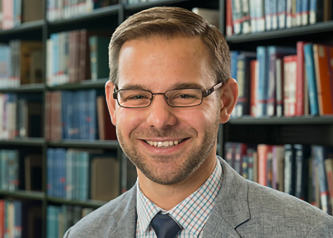

Faculty Chair of the Committee, Associate Professor, Crown Family School of Social Work, Policy, and Practice, and Interim Faculty Director, Latin America Faculty Steering Committee
Alan Zarychta studies comparative public policy and administration in Latin America, focusing specifically on the politics of social service delivery related to public health and environment. His work explores how institutional reforms, such as decentralization and community-based management, are developed and implemented, what helps makes them effective, and whether these reforms can improve systems of governance for the benefit of local communities.
For the last several years, Zarychta has been leading an interdisciplinary team studying health sector reform in Honduras. With funding from the National Science Foundation and in collaboration with the Honduran Ministry of Health, this project investigates the effects of decentralized governance on the responsiveness and overall performance of local health systems. He is currently working on two extensions of this research: the first project studies efforts to improve the governance of rural water systems facing increasing scarcity in Honduras, and the second compares health sector reform experiences across Central America, both supported in part by UChicago Global.
Q. Why is international collaboration important in your field of study?
A. My research on social service delivery, which initially developed out of an international collaboration, is situated in and focuses on the experiences of governments and communities in Central America. Ongoing work with these collaborators has been fundamental to both understanding the drivers of effective governance and translating the findings of our research into credible recommendations for policy and practice.
Q. How has your work with international partners been beneficial to you and your career, specifically?
A. Partnerships with governmental officials, policymakers, civil servants, and practitioners have made this research possible, and as a scholar I strive to represent their experiences and voices as genuinely as possible in the work we produce. Furthermore, the foundations of dialogue and trust that sustain long-term partnerships not only improve the research, but have also provided opportunities for new projects and programs.